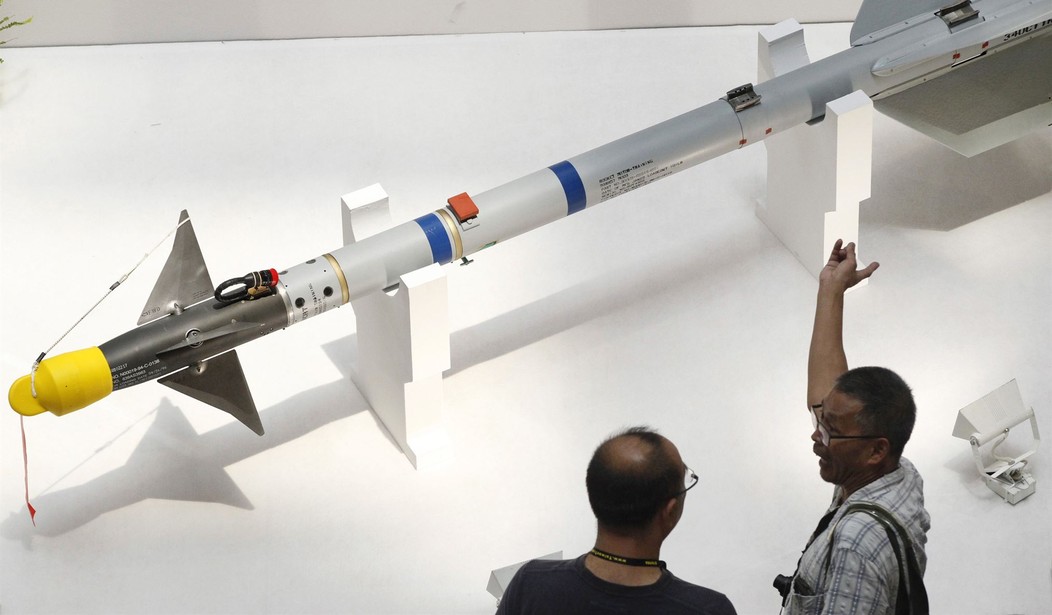Part of the recent spending cap deal provided for significant Pentagon spending, but many of the details about where particular pockets of money would go still needed to be worked out. Now the House Appropriations Committee is digging into those figures and tweaking them a bit. One of the tweaks in question slashed more than two billion dollars from the Pentagon’s proposed plan to ramp up domestic missile purchases over multiple years. The money was transferred to other military priorities. This change allegedly was not made in an attempt to derail support for Ukraine’s forces, but because the Pentagon “failed to show its work” in terms of the cost projections associated with a multi-year missile procurement plan. (Politico)
Republicans on the House Appropriations Committee are making significant cuts to an ambitious Pentagon goal to ramp up production of missiles as it seeks to arm Ukraine while preparing for a potential conflict with China.
Appropriators exacted more than $2.5 billion in reductions to sections of their Pentagon spending bill that deal with missile procurement across the military services, according to a draft committee report obtained by POLITICO that includes funding tables to accompany the legislation.
The shift in funding to other accounts by the influential spending committee is a blow to a major pillar of President Joe Biden’s defense plans laid out in his most recent budget proposal.
In some ways, it’s refreshing to see the Appropriations Committee actually exercising some oversight and demanding realistic cost controls in this fashion. After all, the Pentagon has never been able to pass a complete audit of its assets But at the same time, this is a curious area to select for making cuts.
We’ve previously discussed the sorry state of weapons production in the United States. Part of the problem is, of course, the massive amount of hardware that we’ve been sending to Ukraine, depleting our own supplies to the point where we’re raiding some of our own emergency stockpiles that are supposed to help protect our allies. But the other issue is that American manufacturers of munitions, particularly advanced missiles, are still on a peacetime footing and have been unable to ramp up production levels quickly. We currently have only two plants capable of producing the 155mm howitzer shells that Ukraine is burning through in huge numbers every day.
These manufacturers are unwilling to make the investments required to significantly increase production levels because they don’t know how long the demand for those products will continue. By approving a multi-year purchase agreement, they would be able to expand their capacity going forward. With that in mind, the spending proposal that the Republicans are currently chipping away at would make sense.
Does anyone really believe that the demand for these munitions is going to quickly fade away? There doesn’t seem to be any end in sight for the war in Ukraine and we simultaneously need to be loading up our supplies around Taiwan in case of an invasion by China. And we still have to replenish the existing stockpiles that we’ve drained by endlessly supplying Ukraine “for as long as it takes.”
But there are other challenges to overcome beyond simple questions of supply and demand. Last month, former NATO commander James Stavridis penned an op-ed in which he described the global supply chain issues that will hinder our production efforts even if the manufacturers are willing to sign on for longer contracts.
While NATO is more than a year out of Afghanistan, the huge needs of Ukraine are driving challenges in supplying material to combat operations at a level I did not anticipate. The need for electronic components in particular — to build precision-guided weapons, sophisticated drones, anti-ship cruise missiles and so-called smart artillery rounds — is soaring. Despite the sluggish global economy, civilian firms are competing with the Western militaries for the crucial semiconductor chips, particularly the high-end ones produced largely in Taiwan.
Even if we manage to get a handle on the supply chain issues, there is more that could be done to address these shortages. One of the biggest boosts we could orchestrate would involve getting our Western European allies to pay more than lip service to these military concerns. If they would step up and place significant, multi-year orders of their own for munitions, the manufacturing sector would respond more quickly. And given that America is still shouldering the lion’s share of the cost of the war in Ukraine, that should be the least they could do. But nobody in the current administrations appears to be able to get them to cooperate.








Join the conversation as a VIP Member